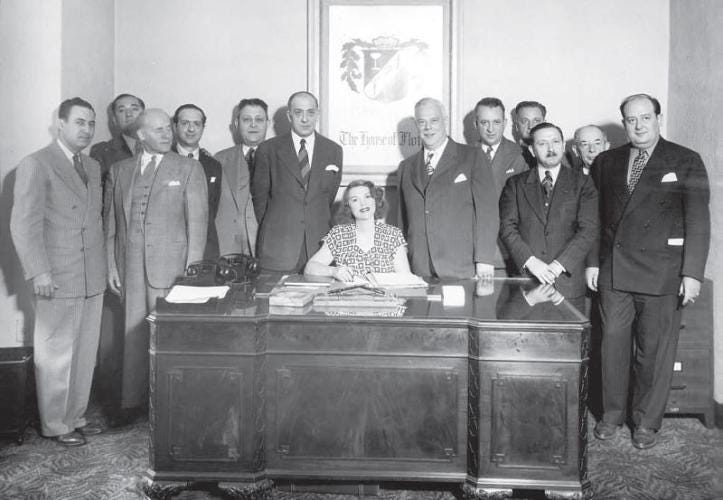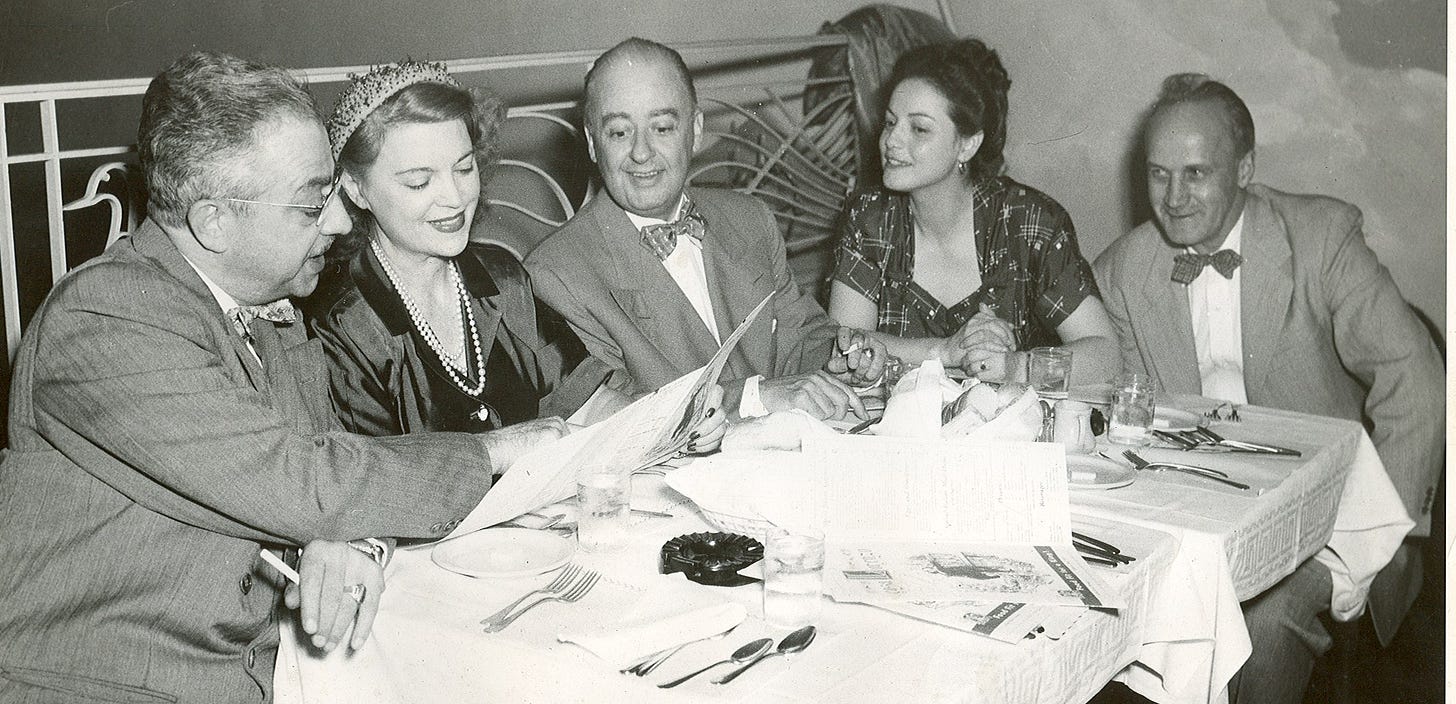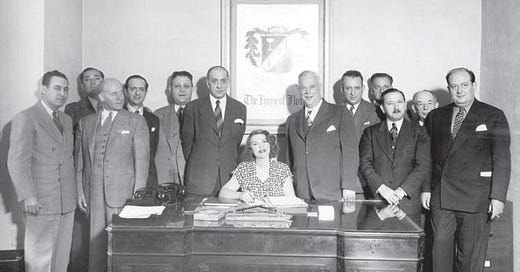A Woman to Know profiles once-forgotten women from history. To support this work, become a paid subscriber. You’ll get access to the subscriber-exclusive Friday editions, but you’ll also be able to read the entire back catalogue — that’s nearly 10 years of women to know!
If you’re interested in recommending a woman to know, sponsoring a single edition (or a week of subscriber-only editions!), partnering on a project or otherwise just want to get in touch — reply to this newsletter.

We are at the very beginning of my most favorite season: tomato season.
And Americans owe a lot of how they eat, buy and think about tomatoes to one woman: Tillie Lewis, the so-called “Tomato Queen.”
When Tillie — born with the much less-commercial name of “Myrtle Ehrlich” — turned 15, she an Italian man who imported pomodoro tomatoes from Italy. The marriage didn’t last, but Tillie’s love of those same tomatoes did; after finalizing the divorce, she moved to Naples to work with the vegetables directly, in a tomato cannery.
But before long, the owner of the tomato cannery, Florindo del Gaizo, approached Tillie with a proposition. The U.S. had just imposed high tariffs on imported tomatoes, and Florindo offered to share seeds and provide equipment to Tillie if she’d move back to America to grow and sell his tomatoes.
Tillie moved to San Joaquin County in California and hit the ground running. She worked with local farmers, convincing them to try growing her Italian seeds, and with Florindo, she created the Flotill Foods Corporation. In 1935, she became the first American woman to open her own canning plant.
By 1940, she’d turned San Joaquin County into America’s top tomato-producing region.In 1941, she negotiated the U.S.’s first full union contract in agricultural labor — and fell in love with the labor organizer who helped her negotiate the deal.

As her company soared to success, Tillie’s reputation as a CEO grew with it. They put her face on the cans and jars, and in 1951, the Associated Press named her “businesswoman of the year.”
As TIME Magazine reported that same year:
In Manhattan's elegant St. Regis Hotel last week, a waiter carried two tomatoes on a tray into the suite of Mrs. Tillie Lewis of Stockton, Calif. She was aghast at the bill ($1). "You tell Vincent Astor,"* said Mrs. Lewis as she signed the check, "that these tomatoes cost him no more than 5¢ apiece, that's 1,000% profit." Said the waiter: "I guess you know your tomatoes.” The waiter didn't know it, but he was indulging in an understatement.
In 1961, she renamed her company Tillie Lewis Foods and took it public. With her new line of diet foods, innovative canning practices and — of course — the continued popularity of her tomatoes, Tillie Lewis Foods eventually reported more than $90 million in sales.
More on 🍅:
Tillie Lewis, founder of Coast Canning Concern, The New York Times
Hearing the Voices of Women Leaders in Business and Finance, The Smithsonian American Women’s History Museum
The “Tomato Queen” of San Joaquin, The Stockton Record
Even Though the Room Is Full, They Are “The Only One in the Room,” The Smithsonian
More from me:
I’m about halfway through Jonathan Strange & Mr. Norrell, reading alongside some friends from my writing group. I’m trying to finish before I travel at the end of the week because carrying 800-plus pages on an airplane — oof. I’m also loving Portia Rosenberg’s illustrations included in my library copy; more giant books should have illustrations!
You’ll hear my voice Your Money Briefing at The Wall Street Journal, breaking down what tariffs, market swings and more mean for you and your financial life.
My friend Koa Beck launched an exciting newsletter diving deep on the L.A. stereotype we all know (and love): Valley Girl. You should subscribe!






